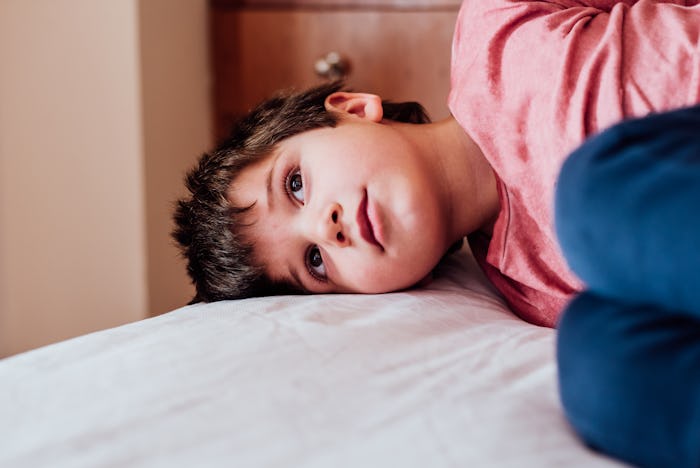Life

Can Kids Get Kidney Stones? Doctors Explain
If you have ever had the unfortunate experience of passing a kidney stone, you are already familiar with the nauseating, extreme pain that they cause. If you're a parent, you also might be wondering if your child could suffer the same fate every time they complain about their back hurting. But can kids get kidney stones or is it just for us grown-ups?
Pediatrician Dr. Amna Husain tells Romper that, unfortunately, children do get kidney stones, and even premature infants can develop the issue. But she also says that they "most commonly occur in teens, with teen girls having the highest incidence. Most of the causes of kidney stones are due to diet and/or the amount of fluid a child is drinking."
Cases of pediatric kidney stones have actually been on the rise for several years, according to the Children's Hospital of Philadelphia (CHOP). The National Institutes of Health (NIH) warns parents that kidney stones are a health emergency, so if your child develops any of the primary symptoms, you need to call your doctor right away so that they can be seen and treated.
"Usually, the most common sign of a kidney stone and older children and teens is a sudden onset of pain in the back or side," Dr. Husain says. "Usually, the pain is constant and severe, with sometimes accompanying symptoms of nausea and vomiting. Sometimes the pain may even move into the groin area as a stone passes down the urinary tract, and you may even see blood appear in the urine."
As someone with an absolutely unhealthy addiction to diet soda and salty foods, I know how bad kidney stones hurt, and no one wants that for their child. Pediatrician Dr. Lisa Lewis agrees with Husain, telling Romper that what causes kidney stones in children is similar to what causes kidney stones in adults: diet and dehydration. But both Lewis and Husain point out that there are genetic conditions that may be at play when it comes to the development of kidney stones, so your child's doctor may want to consider further testing.
As for getting rid of them, Lewis says that many kidney stones pass on their own, but some may need to be removed surgically. And Husain says that treatment is exactly what you'd think — drinking water or getting IV fluids. If surgical treatment is required, it's probably a larger stone. But Husain says they also might be treated using a special device that "sends sound waves to smash the stone into smaller pieces, otherwise known as lithotripsy. While it may sound alarming, it’s actually quite safe and can even be done in very small children."
The best cure, however, is prevention, and in order to prevent these tiny stone demons from occurring, Husain says, "Children should continue to drink fluid throughout the day, limit sodas and soft drinks, and limit high amounts of salt in their diet." Which is good advice for all of us, really.